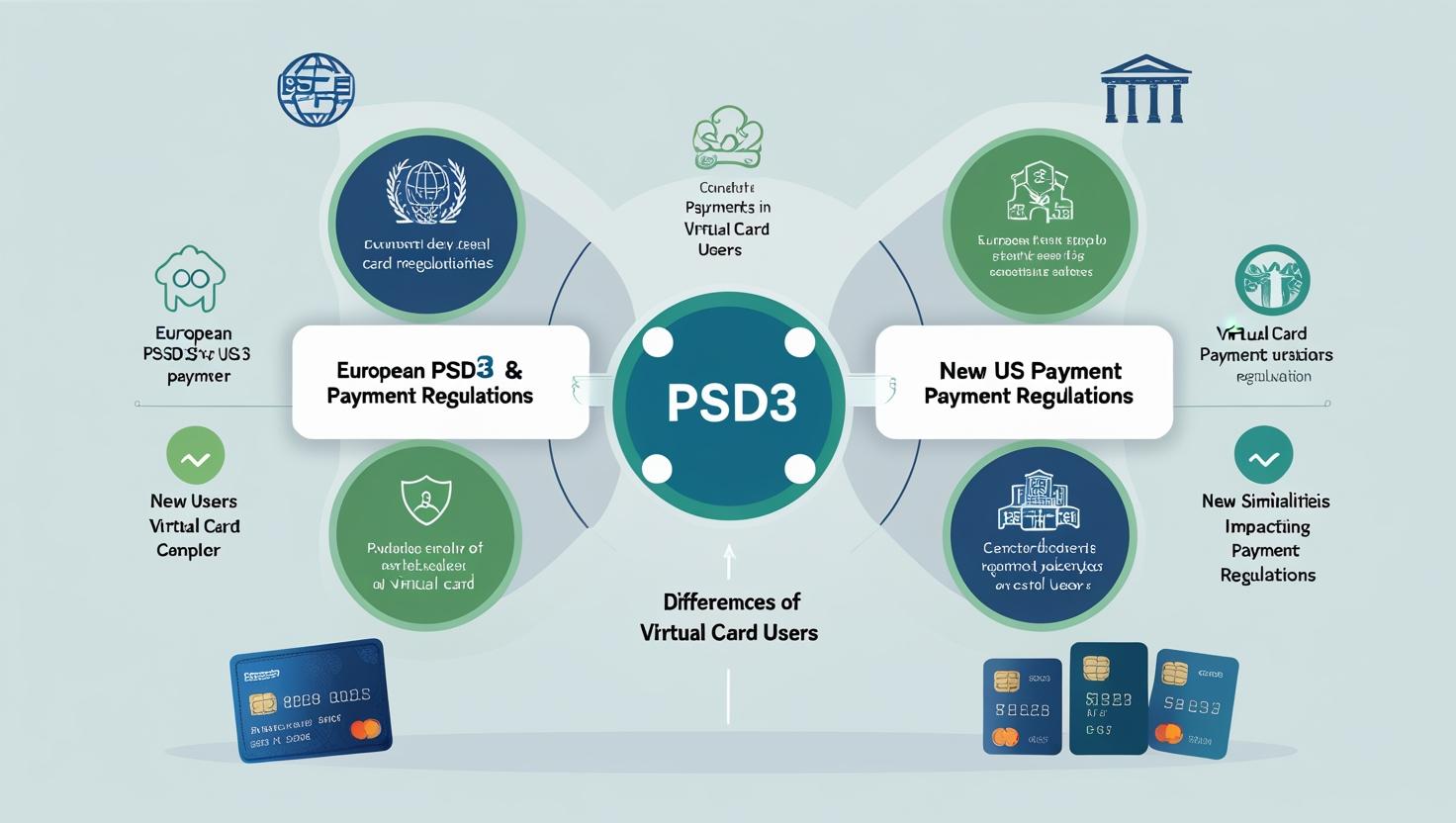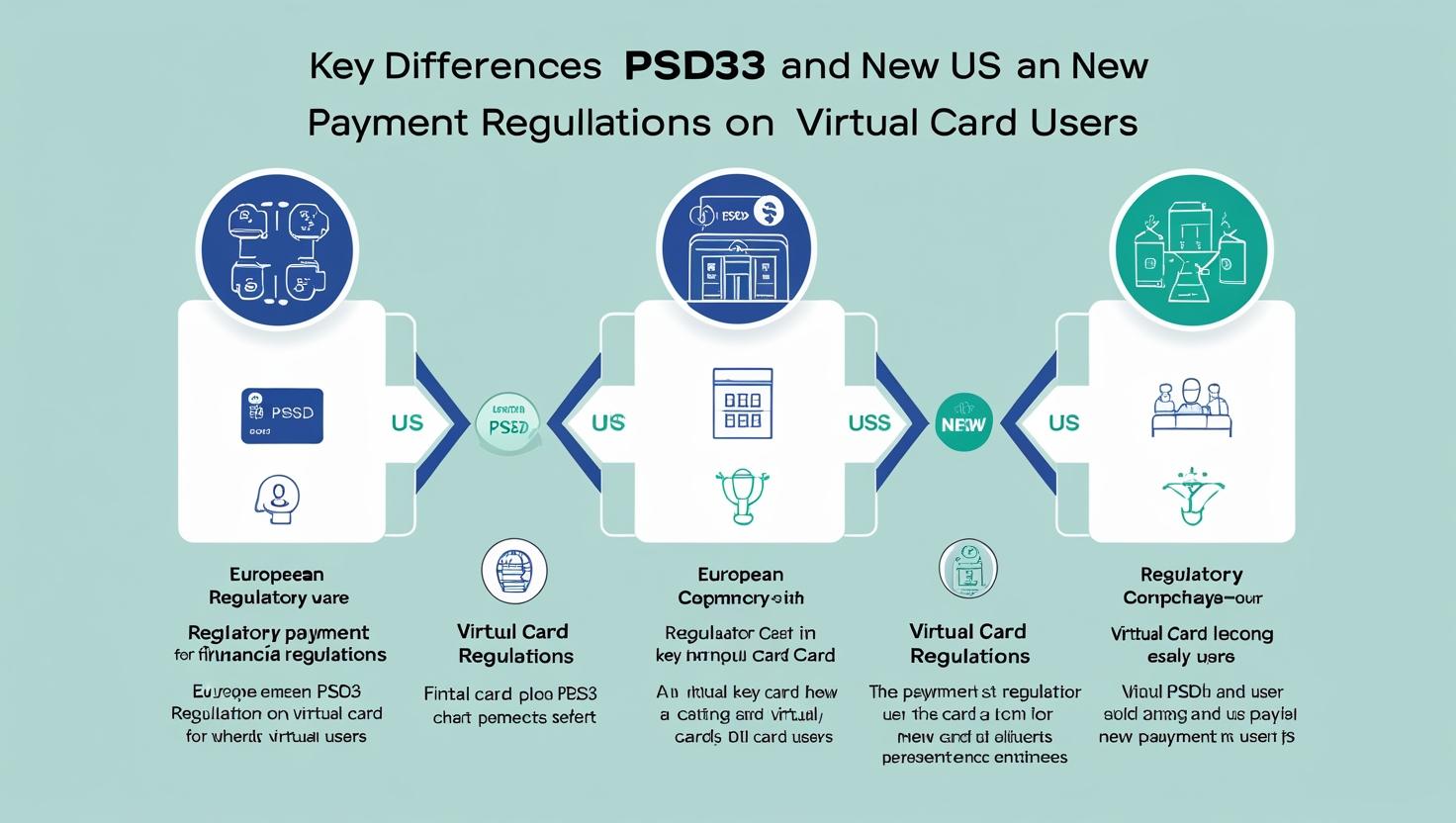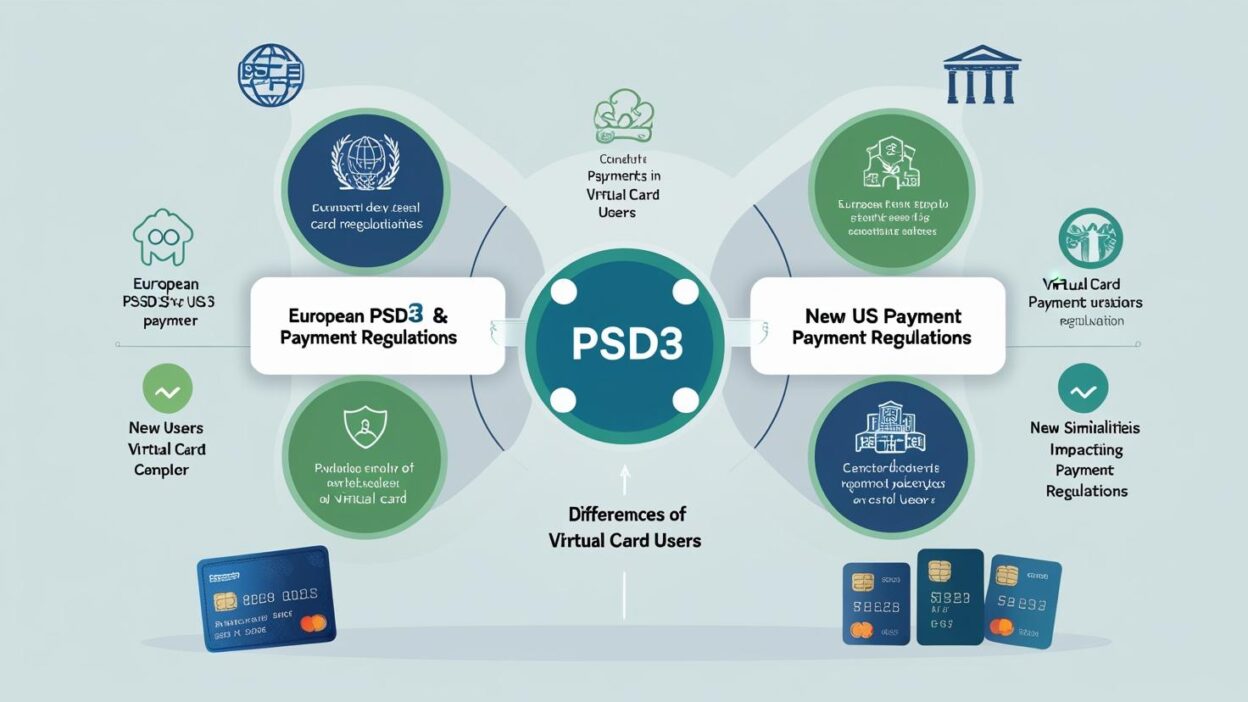The global payments ecosystem is undergoing a regulatory shift, with Europe’s PSD3 framework and new US payment regulations reshaping how digital transactions are conducted. These updates aim to increase transparency, strengthen fraud prevention, and boost consumer protections. For businesses and individuals who rely on virtual cards, these developments are particularly important. Virtual cards are widely used for subscriptions, cross-border transactions, and digital commerce, making them directly affected by changes in compliance and security requirements.
In this article, we’ll examine how PSD3 in Europe and new US payment regulations impact virtual card users, explore potential benefits and challenges, and highlight how platforms like Buvei provide practical solutions for navigating this evolving landscape.

Understanding PSD3: Europe’s Next Payment Directive
The Payment Services Directive 3 (PSD3) is the European Union’s upcoming regulatory framework, expected to replace PSD2. Its primary objectives include:
-
Strengthened consumer protection against fraud, especially in online transactions.
-
Enhanced security standards for payment authentication and data sharing.
-
Updated licensing rules for payment service providers, ensuring compliance across EU states.
For virtual card users, PSD3 is highly relevant. One key update involves strong customer authentication (SCA), which will apply more consistently across digital payments. This means virtual card transactions may require multi-factor authentication, further reducing fraud risks.
Another aspect of PSD3 is open banking integration. By enabling more secure data sharing between banks and fintechs, PSD3 could make virtual card platforms more interoperable, leading to smoother cross-border payments for European businesses and freelancers.
 New US Payment Regulations: A Focus on Consumer Safety
New US Payment Regulations: A Focus on Consumer Safety
In the United States, regulatory agencies are taking steps to address fraud and hidden fees in digital transactions. The Consumer Financial Protection Bureau (CFPB) and other regulators are introducing policies that:
-
Require greater transparency in subscription billing.
-
Mandate clearer disclosures on transaction fees.
-
Strengthen fraud liability protections for users of payment networks.
For virtual card users, these rules are beneficial because they provide better protection against unauthorized charges and excessive billing practices. For example, using a virtual card for streaming or software subscriptions allows users to cap spending limits and cancel auto-renewals, aligning perfectly with new compliance standards.
Regulators are also looking into peer-to-peer payment networks, where fraud has been on the rise. This increased scrutiny indirectly benefits virtual card holders, as secure alternatives like BUVEI’s virtual card platform become more attractive compared to riskier direct transfers.
Benefits of Virtual Cards Under New Regulations
As Europe and the US strengthen their payment rules, virtual card adoption is likely to accelerate. Key benefits for users include:
-
Enhanced fraud protection: With PSD3’s stricter SCA requirements and US liability protections, virtual card transactions will face fewer fraud-related risks.
-
Subscription management: New US rules on recurring billing empower users to avoid unwanted charges, while virtual cards let them set transaction limits or create merchant-specific cards.
-
Cross-border efficiency: PSD3’s open banking framework may simplify international payments, giving virtual card users better integration with banking systems.
-
Business compliance: Companies using virtual cards can stay aligned with evolving regulations, reducing the risk of penalties for non-complian ce.
How Buvei Supports Secure and Compliant Virtual Card Use
Navigating complex regulations requires reliable solutions. BUVEI, a leading virtual card solutions provider, offers businesses and individuals a way to stay ahead:
-
Global compliance: BUVEI’s platform aligns with EU PSD3 requirements and US payment regulations, ensuring secure transactions worldwide.
-
Fraud prevention: With built-in multi-factor authentication and real-time monitoring, BUVEI minimizes risks for both consumers and enterprises.
-
Customizable controls: Users can set spending limits, restrict merchant categories, and manage multiple cards, making subscription and business expense management seamless.
-
Cross-border support: BUVEI simplifies international commerce by offering virtual cards accepted by major payment networks, supporting businesses expanding globally.
By combining regulatory compliance with flexible virtual card features, BUVEI helps users adapt to evolving payment landscapes without sacrificing convenience.

Conclusion
The transition to PSD3 in Europe and the introduction of new payment regulations in the US represent a major step toward safer, more transparent, and user-friendly digital payments. For virtual card users, these changes bring opportunities to strengthen fraud protection, streamline subscriptions, and improve cross-border financial management.
Platforms like Buvei play a critical role in ensuring that individuals and businesses can not only comply with these regulations but also leverage them for greater security and efficiency. As global payment rules continue to evolve, embracing virtual card solutions is no longer just a convenience—it’s a strategic advantage.












